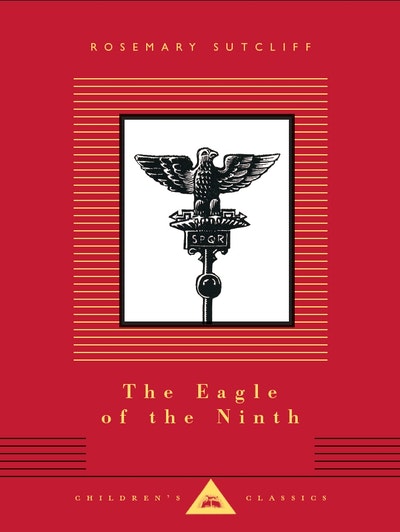- Published: 15 October 2015
- ISBN: 9781857155204
- Imprint: Childrens Classics
- Format: Hardback
- Pages: 304
- RRP: $40.00
The Eagle Of The Ninth
- Published: 15 October 2015
- ISBN: 9781857155204
- Imprint: Childrens Classics
- Format: Hardback
- Pages: 304
- RRP: $40.00
Those books are colossal. They are fantastic.
David Mitchell on The Eagle of the Ninth trilogy
I found myself caught up in [The Eagle of the Ninth] all over again, when the film version appeared in 2011. Fifty years on, I found its you-were-there deciption of Roman Britain and gripping plot as beguiling as ever... Re-reading Sutcliff, I realise just how un-condescending to younger readers her style and vocabulary are ... More important, the bok taught the younger me about friendship, courage and integrity. Sutcliff's heroes are models of how to be good people, but never priggish or unbelievable...
Sally Hawkins, The Sunday Times
Decades later, I can still hear echoes of The Eagle of the Ninth in my head: the chink of mail, the tired beat of the legionaries' feet.
The Independent
These tales of Roman Britain have yet to be surpassed for their non-patronising prose and adult dangers. Sutcliff makes Classics and archaeology uniquely thrilling for children.
Amanda Craig, The Times


